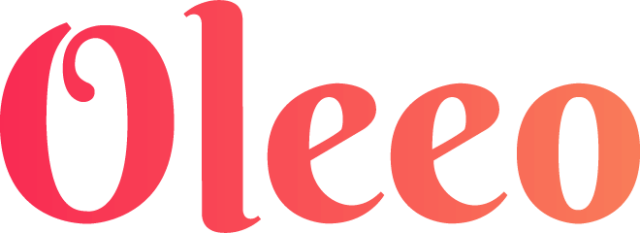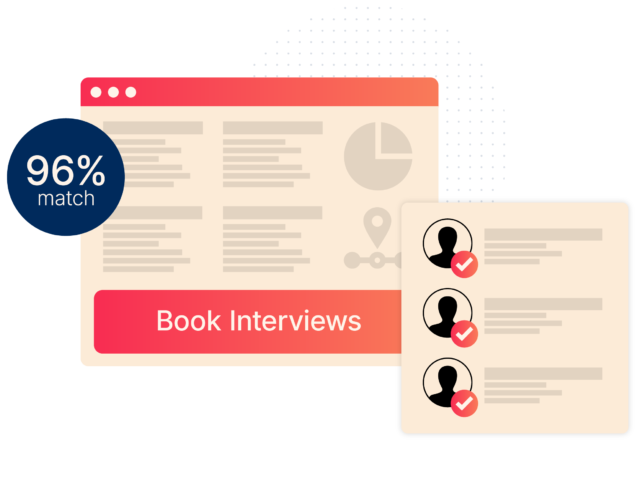AI Recruiting Trends in 2025: A Guide to Talent Acquisition Technology For Recruiters

To stay competitive, you don’t just need to follow AI recruiting trends — you need to stay ahead of them.
AI recruitment technologies play a leading role in the hiring process, automating and optimizing everything from candidate sourcing and resume screening to communications.
As a result, it’s pivoting businesses toward a culture of hiring the most skilled, suitable candidates from an enlarged talent pool, infusing inclusivity and personalization into candidate communications and experiences.
In this article, we’ll discuss the latest AI trends in recruiting, from GenAI to ethical AI, to explore why — and how — you can stay ahead of the game.
AI Recruiting Trend 1: Integrating GenAI into Hiring and Talent Acquisition
Of all the ways employers use AI In Recruitment, GenAI is particularly notable for revolutionizing the speed and quality of content generation and automating key tasks like candidate sourcing, resume screening, and resume shortlisting.
Let’s take a closer look at some trending ways GenAI is used in recruitment.
Generation
To source high-quality candidates, you need high-quality content — job descriptions, advertisements, and candidate outreach messages that attract applicants with the relevant skills and cultural values.
Instead of manually crafting this content, recruiters leverage generative AI to automate the process.
For example, AI can help you write job descriptions that truly reflect the relevant role, including inclusive, engaging language to maximize the volume of high-quality candidates.
AI tools also scour online platforms for active and passive candidates and match them against your job requirements. From there, they can automate candidate outreach emails using data gathered from customer profiles to personalize messages.
Summarization
Recruiters have to trawl through lots of documents, such as resumes, cover letters, and test results, to find the best candidates.
Against your predefined skills, experiences, and attributes, AI can analyze and summarize lengthy documents to efficiently identify suitable candidates.
Intelligent search
Traditional search tools rely on strict algorithms that match keywords exactly. This can lead candidates and recruiters to dead ends, where their search results pull up irrelevant vacancies and candidate profiles.
Placing AI-powered search on career websites removes this limitation. AI can infer the context and intent of search queries using natural language processing, machine learning, and a deep understanding of synonyms and predictions.
This enables it to deliver more accurate and relevant search results, quickly leading candidates to suitable job roles and recruiters to suitable candidates.
Why this AI recruiting trend is important
Used effectively, GenAI saves HR time and money while promoting personalization and inclusivity.
-
Cost and time-savings: Creating job descriptions, ads, and outreach messages takes time and effort. By automating these repetitive tasks, AI frees up workflows to empower recruiters to spend more time nurturing relationships and executing strategic decision-making.
-
Inclusivity: GenAI aims to promote fairness and inclusivity in hiring processes by creating inclusive messages and analyzing candidates fairly and consistently.
-
Personalization: Personalizing candidate outreach is difficult when you have hundreds — if not thousands — of potential candidates. GenAI uses the data gathered from customer profiles to tailor outreach messages and attract the best candidates.
AI Recruiting Trend 2: Speeding Up the Transition to Skills-Based Hiring
According to Nace Job Outlook 2024, less than 40% of employers use educational qualifications as a main screening factor, highlighting the monumental shift away from academic-focused hiring.
Instead, skills-based hiring is taking center stage as employers prioritize sourcing candidates with relevant, demonstrable skills.
Recruitment technologies play a leading role in speeding up this transition. AI-powered skills assessments match candidates to roles based on specific, tangible skills and real-world industry knowledge rather than factors that don’t necessarily equate to a person’s ability to succeed in a role.
Why this AI recruiting trend is important
The transition to skills-based hiring is inevitable as employers realize that hiring based on skills leads to fairer hiring processes, better candidate/job fit, and increased employee performance and retention.
-
A wider talent pool: Skills-based hiring recognizes career changers, transferable skills, and highly capable professionals with less traditional achievements. This unlocks access to a wider pool of fresh talent, reducing competition.
-
Better candidate-job fit: Relying on traditional qualifications and past job titles as screening factors increases the risk of mis-hires and turnover. AI matches candidates with roles based on what they can do — not where they’ve been. This results in a better candidate/job fit, increasing employee performance, satisfaction, and retention.
-
Increased desirability: Employers want to be valued for their skills. Leveraging AI to promote skills-based hiring sets you apart as an inclusive employer that values learning and development, increasing desirability among active and passive job-seekers.
AI Recruiting Trend 3: The Growth of Intelligent Assessment Platforms
AI-powered assessment platforms have evolved beyond basic resume screening automation. AI can perform hyper-precise pre-employment testing by analyzing thousands of data points from resumes, application forms, online test scores, and more.
Using this data, AI can evaluate skills, competencies, experience, as well as cultural fit, adaptability, and leadership/growth potential.
AI also uses predictive analytics to enhance candidate matching. It takes available data like historical employee performance, retention rates, test results, and behavioral indicators to forecast candidate success.
Why this AI recruiting trend is important
Manual assessments are time-consuming, prone to bias, and often fail to consider critical data points. Intelligent assessment platforms create faster, fairer, and cheaper hiring processes that give you a more holistic view of a candidate’s suitability.
Better candidate quality: AI identifies the skill sets and traits of high performers and evaluates candidates against these factors to pinpoint suitability with more accuracy. This results in a better shortlist of candidates.
Data-driven hiring decisions: Predictive analytics gives you access to data patterns and relationships often missed by human eyes, driving data-informed recruitment decisions. They also help you achieve AI-driven Internal Mobility through the identification of skills gaps, highlighting vital learning and development opportunities.
Lower recruitment costs: By knowing what makes a great candidate, AI ensures only the best progress. Ultimately, this reduces the cost of assessments, interviews, mis-hires, and turnover. According to SHRM, 35% of employers using AI were able to reduce their recruitment, interviewing, and/or hiring costs.
Reduced turnover: Mis-hires are a leading cause of employee turnover, which costs your business money and drains productivity. Intelligent assessment platforms reduce turnover by accurately matching candidates based on immediate job fit and their likelihood of long-term success.
Removes bias: Unconscious and conscious biases are rife in recruitment. Recruiters may favor or disfavor certain communication styles, personality traits, skills, or degrees, which can lead to unfair hiring processes. AI-driven assessments evaluate candidates based on inclusive data, helping to remove bias from recruitment.
AI Recruiting Trend 4: Revolutionizing Mass Hiring
AI-powered tools revolutionize mass hiring by automating tasks such as screening, scheduling, and candidate communication.
Automated screening can evaluate and filter thousands of resumes much faster than humans. They use machine learning algorithms to score candidates against pre-determined criteria and progress them to the next stage.
You can also leverage conversational AI chatbots to communicate with candidates simultaneously. Chatbots can maintain high levels of communication with candidates as they can handle limitless interactions. They can respond to questions, schedule interviews, send follow-up information, and deliver feedback.
Why this AI recruiting trend is important
A lack of tools and manpower creates inefficient large-scale hiring processes. AI resolves this challenge by enabling mass hiring without sacrificing quality.
-
Saves time and efficiency: According to SHRM, 88% of companies that use AI in recruitment do so because it saves them time and increases efficiency. HR can use AI technologies to optimize recruitment funnels in large-scale hiring, filling roles faster while simultaneously delivering high-quality candidate experiences.
- Better candidate experiences: Using AI For Candidate Experience helps you maintain responsive, proactive communication. You can use chatbots to deliver prompt feedback, respond to questions around the clock, and keep candidates updated every step of the way.
AI Recruiting Trend 5: Ethical AI and Bias Reduction
One of the most important AI recruitment trends is the adoption of ethical AI.
Ethical AI is the practice of using AI responsibly to promote fairness, transparency, and accountability. It has emerged in response to ethical concerns and risks that sometimes occur when AI is used without proper care.
Some best practices for ethical AI usage in recruitment processes include:
-
Training AI using inclusive, unbiased data
-
Being transparent with candidates about how and why you use AI
-
Prioritizing data privacy
-
Maintaining human oversight in AI decision-making processes
-
Establishing clear ethical AI policies that guide the responsible use of AI to comply with regulations and maintain fairness, transparency, and accountability.
Why this AI recruiting trend is important
AI biases, customer privacy breaches, and reputational/legal repercussions are common challenges that can be eliminated with ethical AI.
Removing potential AI biases: AI is only as unbiased as the training data it’s fed. If left unchecked, AI-driven bias can limit the talent pool, create a lack of diversity, facilitate unfair hiring outcomes, and create a discriminatory culture. Training AI on inclusive, unbiased data is crucial for reducing these risks and promoting a fair hiring process.
Protecting candidate data privacy: Job seekers are concerned about how companies use their data. Ethical AI promotes transparency by obtaining consent, communicating how data is used, and implementing strict data security.
Avoiding reputational and legal repercussions: The unethical use of AI can severely damage your company’s reputation. It can also lead to legal repercussions if you’re accused of regulatory non-compliance or unfair/discriminatory AI hiring processes.
Stay Ahead of AI Recruiting Trends in 2025 with the Right Talent Acquisition Recruitment Platform
AI trends in recruitment evolve at lightning speed. You need a recruitment platform integrated with powerful AI features to keep up.
Introducing Oleeo’s intelligent Talent Acquisition Platform: a solution purpose-built to streamline high-volume hiring and create better candidate experiences using ethical AI.
Packed with intelligent features continually updated to reflect the latest AI recruiting trends, you can stay one step ahead of competitors and deliver the best candidate experiences along an optimized hiring funnel.
With Oleeo, you get:
-
Intelligent job posting so you can create accurate job descriptions, ads, and outreach messages
-
Intelligent selection that automates candidate screening, scoring, and filtering
-
Intelligent writing tools that weed out bias within your job postings and offer suggestions for inclusivity
-
Tailored application forms and social capabilities to promote effective candidate communications
-
And much more.
Interested? Explore all of the features Oleeo has to offer by Booking a Demo today.
FAQs About AI Recruiting Trends
What is the future of recruiting with AI?
As AI advances, recruitment processes will become more streamlined, data-driven, and personalized. This will result in faster hiring processes and a tighter focus on skills-based hiring.
How is AI being used in recruitment?
AI is used in recruitment to streamline and automate hiring processes, improving time and cost efficiency. It also seeks to create better candidate experiences, remove bias in hiring, and ensure that high-quality candidates are matched to positions.
Which AI tool is best for recruitment?
While all AI recruitment tools have different features and advantages, Oleeo Talent Acquisition Recruitment Platform encompasses all the intelligent features you need to optimize hiring processes and improve candidate quality.



